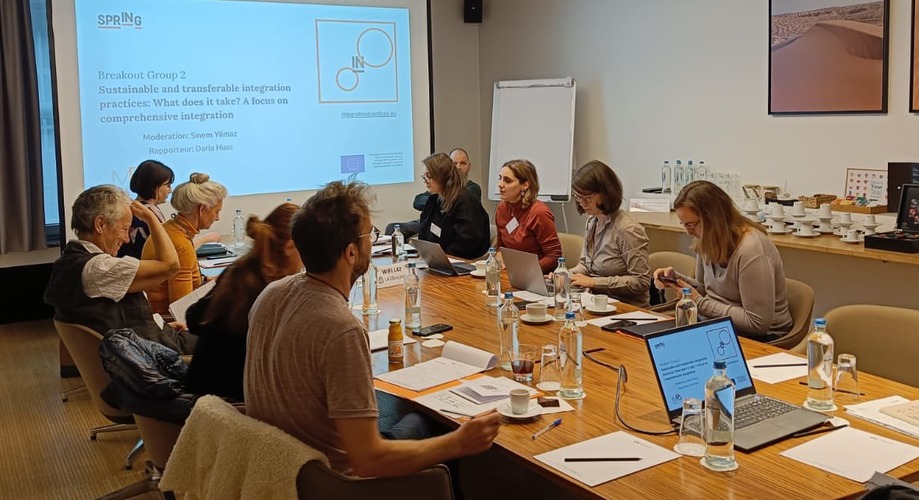SPRING peer learning and networking workshop for researchers and practitioners
On 17-18 November 2022, SOLIDAR and International Centre for Migration Policy Development (ICMPD) co-organised a workshop for the SPRING project (Sustainable Practices of Integration). It took place in Brussels, Belgium, end focused on good practices in the integration of migrants, refugees and asylum seekers and improved integration outcomes through mutual learning.

In the past years and decades Europe has seen an intensification and upscaling of existing integration practices, as well as increased mainstreaming of integration services into standard social services. This year authorities, civil society, the private sector, and individuals mobilised an amazing level of support for people fleeing war in Ukraine. New actors and initiatives emerged in major destination countries – many with relatively limited knowledge and experience in integration until now.
Against this background, the workshop addressed the questions how to bridge the research-practice gap, how to better utilise the knowledge and experience gathered so far and how to make good practices transferable and scalable. The workshop brought together over 40 researchers and practitioners, providing them with a space for networking and mutual exchange and engaging them in lively discussions.
Presentations in the plenary provided injections to the subsequent discussions in the break-out groups, with a focus on an evidence culture on integration and on sustainable and transferable integration practices, and they provided insights from the results produced by the SPRING project so far. They explored, for example, community welcome and settlement as an integration tool based on the Canadian experience, and looked at how practitioners and networks have adapted community sponsorship models in Europe in response to Ukrainian arrivals. Both examples showed that sponsorship programmes involving both diaspora and local communities are particularly successful in building bridges between newcomers and host societies. Drawing on what was learned from co-design trajectories, they also highlighted that practitioners face complex & interconnected problems related to discrimination, policy and organisational (in)capacity, and that migrants need to be included in the integration policy making-cycleto achieve improved integration outcomes.
On the first day of the workshop, participants discussed co-production approaches between practitioners and researchersin the breakout groups, highlighting, inter alia, that:
- Researchers and practitioners need to work together to inform institutional actors about “realities” and in doing so be more courageous in articulating challenges that need to be addressed.
- In order to bridge the research-practice gap, practice needs to be relevant to research and research needs to be relevant to practice. This can be achieved through process-oriented cooperation, including practitioners throughout all stages of the research cycle.
- Funding schemes need to support inter-sectoral research projects, long-term cooperation, and they require a certain level of flexibility to react to the emerging needs of practitioners.
On the second day of the workshop, participants discussed sustainable and transferable integration practices, highlighting, inter alia, that:
- The transfer of good practices requires a flexible approach, drawing inspiration from widely differing ideas and adapting them to the local context. It does do not happen in top-down approaches, but through mutual learning and personal contacts.
- There is a need to focus more on the “little practices” at the local level that can easily be adapted and that require less funding and less time for implementation – while still making a big change.
- Political will is a precondition for the transfer of good practices, while inspiration from practices that work may enhance the political will.
The results of the workshop will feed into a policy brief that will be published on the SPRING platform in the beginning of 2023.
The SPRING Project Sustainable Practices of Integration) has received funding from the European Union’s Horizon 2020 research and innovation program under the grant agreement no. 101004635.



